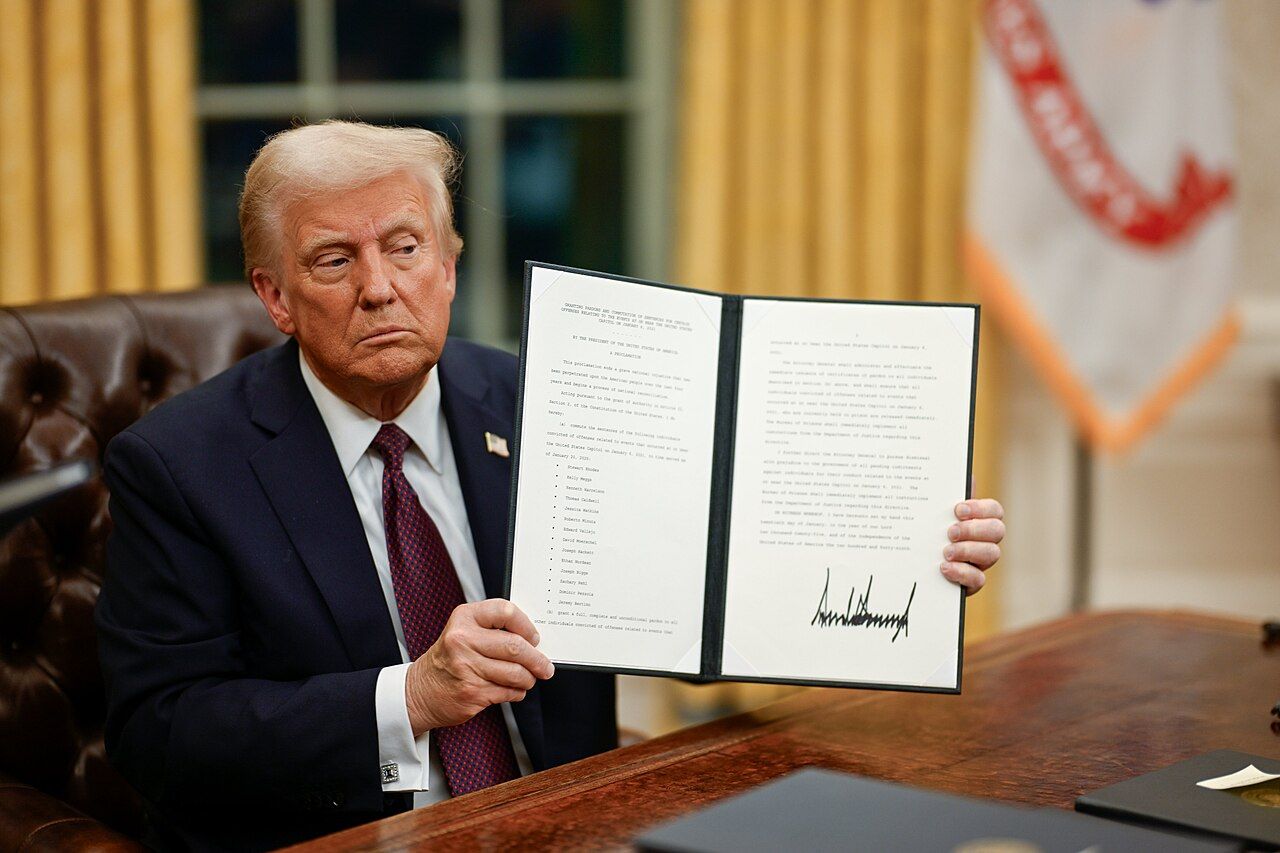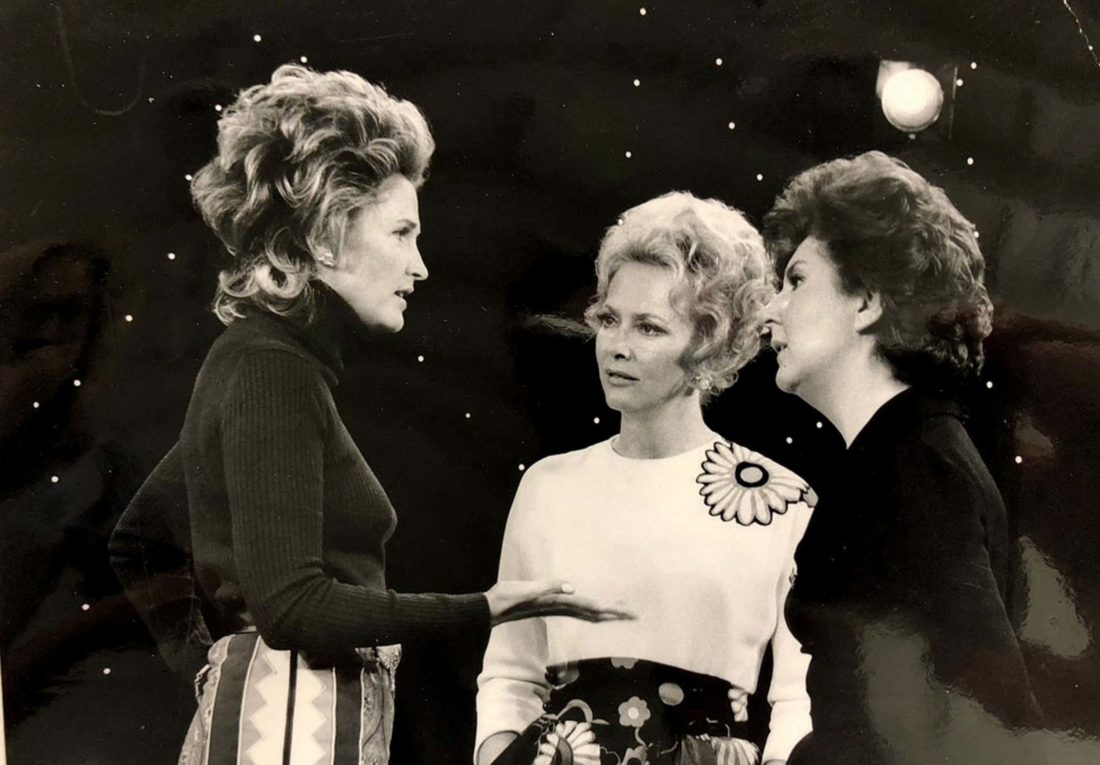
In the annals of American music, few artists have woven the fabric of the nation’s working class and its inherent struggles into their artistry with the profound authenticity of Bruce Springsteen. Renowned globally as ‘The Boss,’ his lyrical narratives have long explored themes of resilience, hope, and the often-unseen battles fought in the heartland. While his music has consistently resonated with socio-economic undertones, his direct political pronouncements, particularly in recent years, have marked a notable evolution in his public persona, transforming him from a cultural icon to a forthright political commentator.
His latest interventions, particularly an interview with Time magazine published Thursday, Sept. 25, reveal a sharpened focus and an intensified conviction regarding the state of American leadership. These remarks are not merely casual observations but represent a considered and deeply felt assessment of the nation’s political landscape. Springsteen’s commentary extends beyond mere disapproval, culminating in a significant assertion that has garnered widespread attention: his contention that former President Donald Trump personifies the very conditions for which the 25th Amendment to the U.S. Constitution was designed.
This article delves into the intricacies of Springsteen’s recent statements, providing a comprehensive analysis of his arguments, the constitutional framework he invokes, and the broader context of his increasing political engagement. It seeks to parse the depth of his criticisms, from his concerns over perceived dishonesty and neglect of the working class to his observations on the public’s acceptance of power-centric politics. In doing so, we aim to illuminate the significance of his stance, positioning it within the ongoing national discourse on leadership, governance, and democratic accountability.
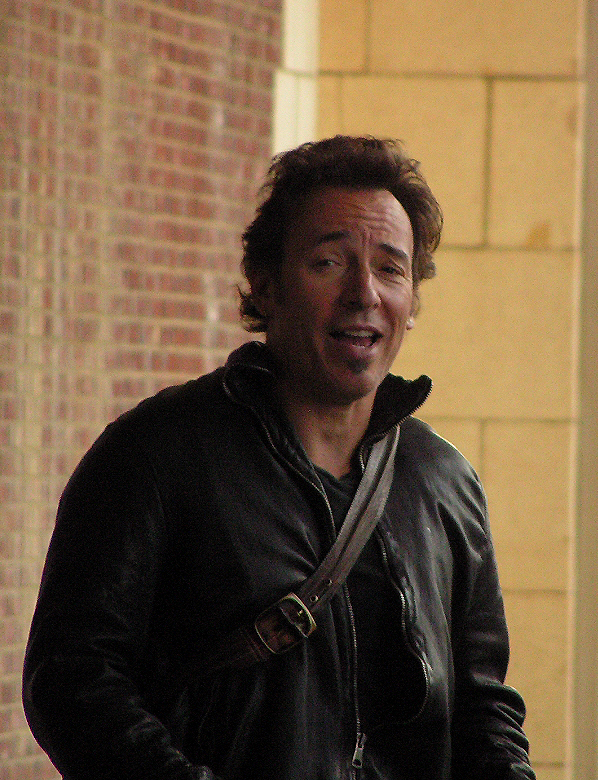
1. **Springsteen’s Direct Call for 25th Amendment Invocation**Bruce Springsteen has unequivocally articulated his belief that Donald Trump embodies the circumstances warranting extraordinary constitutional measures. In his candid interview with Time magazine, he declared, “He’s the living personification of what the 25th Amendment and impeachment were for.” This statement is not merely a passing critique but a profound assertion, suggesting that Trump’s actions and character align with the very exigencies that the framers of the amendment sought to address. It is a direct challenge to the former president’s fitness for office, delivered with the weight of Springsteen’s considerable moral authority and public platform.
Bruce Springsteen has unequivocally articulated his belief that Donald Trump embodies the circumstances warranting extraordinary constitutional measures. In his candid interview with Time magazine, he declared, “He’s the living personification of what the 25th Amendment and impeachment were for.” This statement is not merely a passing critique but a profound assertion, suggesting that Trump’s actions and character align with the very exigencies that the framers of the amendment sought to address. It is a direct challenge to the former president’s fitness for office, delivered with the weight of Springsteen’s considerable moral authority and public platform.
His words reflect a deep-seated conviction, underscoring a belief that the issues at stake transcend ordinary political debate. By explicitly linking Trump to the 25th Amendment, Springsteen elevates his criticism from a partisan attack to a constitutional question. This particular statement, “If Congress had any guts, he’d be consigned to the trash heap of history,” further emphasizes his view that political courage is necessary to uphold the foundational principles of American democracy, suggesting a failure of legislative will in the face of what he perceives as a profound threat.
This call for the 25th Amendment’s application or the consideration of impeachment is not unique to Springsteen, echoing sentiments expressed by other public figures. The context reveals that figures such as actress and “The View” host Whoopi Goldberg had also previously suggested the 25th Amendment should be invoked for Trump after controversial remarks. Springsteen’s alignment with such calls highlights a segment of public opinion that views Trump’s conduct as potentially breaching the unwritten compact between a leader and the nation, necessitating constitutional remedies beyond electoral processes.

2. **Springsteen’s Rationale: “Living Personification”**Springsteen’s powerful declaration that Donald Trump is “the living personification of what the 25th Amendment and impeachment were for” is rooted in a broader set of criticisms outlined in his interviews. This rationale is not a singular point but a culmination of his observations regarding Trump’s leadership style, character, and alleged impact on American democracy. He sees Trump as embodying the very antithesis of responsible governance, making constitutional checks and balances not just advisable but imperative. His statement suggests that Trump’s presidency created the precise scenario that such constitutional remedies were intended to mitigate.
Springsteen’s powerful declaration that Donald Trump is “the living personification of what the 25th Amendment and impeachment were for” is rooted in a broader set of criticisms outlined in his interviews. This rationale is not a singular point but a culmination of his observations regarding Trump’s leadership style, character, and alleged impact on American democracy. He sees Trump as embodying the very antithesis of responsible governance, making constitutional checks and balances not just advisable but imperative. His statement suggests that Trump’s presidency created the precise scenario that such constitutional remedies were intended to mitigate.
One key aspect of this rationale stems from Springsteen’s assertion that Trump fundamentally betrayed the electorate. “A lot of people bought into his lies,” Springsteen told Time magazine, suggesting a pattern of deception that undermines public trust and democratic discourse. This perceived dishonesty is critical because it erodes the basis for informed consent and sound governance, potentially incapacitating the democratic process itself. Springsteen further states, “He doesn’t care about the forgotten anybody but himself and the multibillionaires who stood behind him on Inauguration Day,” painting a picture of a leader whose priorities are self-serving and exclusionary, contrary to the broad public interest.
Moreover, Springsteen identifies a concerning acceptance among a segment of the populace for Trump’s approach to power. “You have to face the fact that a good number of Americans are simply comfortable with his politics of power and dominance,” the singer added. This observation indicates that Springsteen’s concern extends beyond Trump as an individual, encompassing a societal condition where an authoritarian style is tolerated or even embraced. For Springsteen, this comfort with “power and dominance” makes the existence and potential application of mechanisms like the 25th Amendment even more vital, serving as a bulwark against the erosion of democratic norms and potentially preventing a leader from acting with unchecked authority.
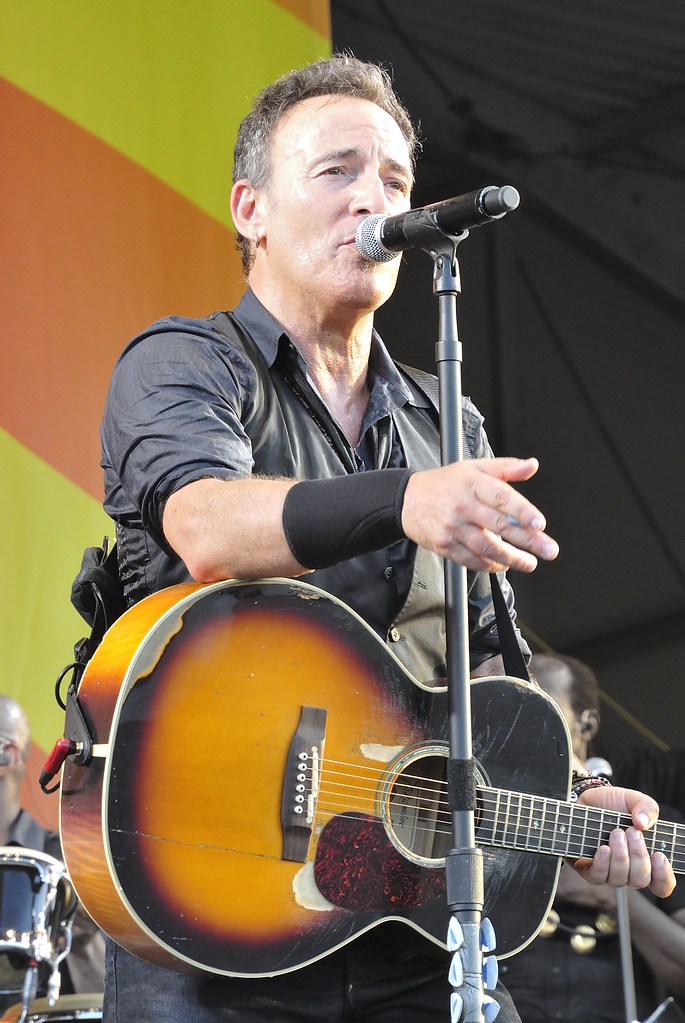
3. **The Evolution of Springsteen’s Political Engagement**Bruce Springsteen’s journey from a primarily musical voice to an outspoken political advocate has been a gradual but decisive transformation, particularly evident during Donald Trump’s presidency. Initially, Springsteen displayed a degree of ambivalence about overtly political commentary. In a 2017 interview with Variety, he stated, “I’m ambivalent about … sort of getting on a soapbox. I still believe people fundamentally come to music to be entertained.” This sentiment reflected a traditional artist’s approach, prioritizing the universality of music over specific political endorsements.
Bruce Springsteen’s journey from a primarily musical voice to an outspoken political advocate has been a gradual but decisive transformation, particularly evident during Donald Trump’s presidency. Initially, Springsteen displayed a degree of ambivalence about overtly political commentary. In a 2017 interview with Variety, he stated, “I’m ambivalent about … sort of getting on a soapbox. I still believe people fundamentally come to music to be entertained.” This sentiment reflected a traditional artist’s approach, prioritizing the universality of music over specific political endorsements.
However, the political climate of recent years compelled a significant change in his stance. The Grammy-winning rocker and ’80s icon “has since changed his tune, using his public performances as a musical soapbox to rebuke the president’s conduct and policies.” This shift underscores a personal conviction that the circumstances demanded more than artistic neutrality. His stage, once a space predominantly for shared emotional experience, became a platform for direct political messaging, signifying a realization that entertainment alone was insufficient in the face of what he perceived as critical national issues.
This evolution is not just about rhetoric; it’s about action. Springsteen’s renewed engagement is rooted in a profound sense of responsibility, as articulated in his reasoning: “If I’m going to stay true to who I’ve tried to be… I can’t give these guys a free pass.” This statement reflects a moral imperative, a belief that his integrity as an artist and citizen requires him to speak truth to power, especially when confronted with what he views as detrimental leadership. His sustained vocal opposition, from Broadway residencies to European tours, illustrates a consistent and escalating commitment to political advocacy, marking a new chapter in his already storied career.
Read more about: Bruce Springsteen: The Saga of The Boss’s Ascendance from Jersey Shore Clubs to Global Icon
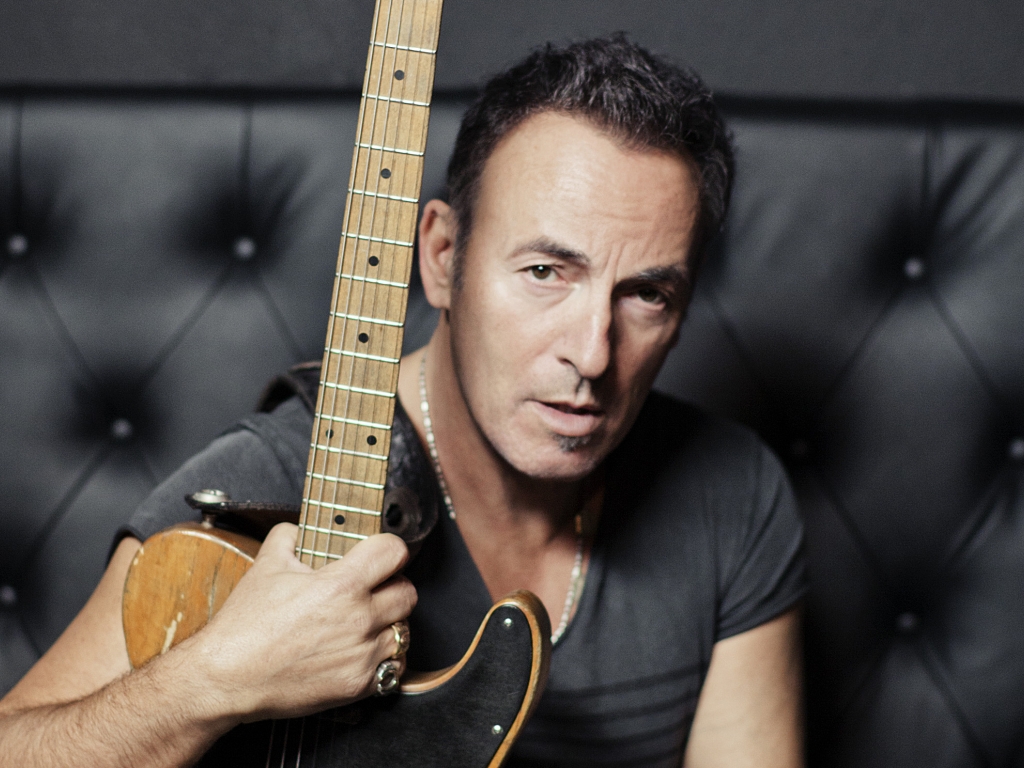
4. **Springsteen’s Core Criticisms of Trump’s Character and Policies**Bruce Springsteen’s critique of Donald Trump extends beyond calls for constitutional intervention, delving into fundamental aspects of the former president’s character and policies. At the heart of his criticism is the accusation of dishonesty. Springsteen stated, “A lot of people bought into his lies,” suggesting a deliberate pattern of misrepresentation that, in his view, misled a significant portion of the American populace. This accusation of untruthfulness forms a foundational pillar of his opposition, impacting his perception of Trump’s fitness to govern and his overall moral authority.
Bruce Springsteen’s critique of Donald Trump extends beyond calls for constitutional intervention, delving into fundamental aspects of the former president’s character and policies. At the heart of his criticism is the accusation of dishonesty. Springsteen stated, “A lot of people bought into his lies,” suggesting a deliberate pattern of misrepresentation that, in his view, misled a significant portion of the American populace. This accusation of untruthfulness forms a foundational pillar of his opposition, impacting his perception of Trump’s fitness to govern and his overall moral authority.
Furthermore, Springsteen directly challenged Trump’s claimed championship of the working class, a demographic with whom the singer has long identified. He asserted that Trump “doesn’t care about the forgotten anybody but himself and the multibillionaires who stood behind him on Inauguration Day.” This indictment suggests that Trump, despite positioning himself as a populist champion, ultimately serves only his own interests and those of a wealthy elite. For an artist like Springsteen, whose entire oeuvre often celebrates the struggles and resilience of ordinary Americans, this perceived betrayal of the working class is particularly galling.
Beyond character and perceived self-interest, Springsteen also critiques Trump’s governance style, characterizing it as a “politics of power and dominance.” This phrase encapsulates a concern about an approach to leadership that prioritizes control and assertion over consensus and democratic principles. Springsteen’s condemnation of Trump as “corrupt, incompetent and treasonous” during a May opening of the E Street Band’s European tour in Manchester, England, further underscores the intensity and breadth of his disapproval, painting a comprehensive picture of a leader he believes is fundamentally ill-suited to uphold the values of the republic.

5. **Trump’s “Broligarchy” and Billionaire Alliances**Springsteen’s critique of Donald Trump is not solely focused on individual character but also extends to the influential alliances he perceives as shaping Trump’s administration. He pointedly remarked that Trump “doesn’t care about the forgotten anybody but himself and the multibillionaires who stood behind him on Inauguration Day.” This observation highlights a fundamental disconnect between Trump’s populist rhetoric and his perceived true loyalties. Springsteen suggests that the former president’s commitments lie not with the broader populace, but with a specific, wealthy elite.
Springsteen’s critique of Donald Trump is not solely focused on individual character but also extends to the influential alliances he perceives as shaping Trump’s administration. He pointedly remarked that Trump “doesn’t care about the forgotten anybody but himself and the multibillionaires who stood behind him on Inauguration Day.” This observation highlights a fundamental disconnect between Trump’s populist rhetoric and his perceived true loyalties. Springsteen suggests that the former president’s commitments lie not with the broader populace, but with a specific, wealthy elite.
The context further elaborates on this perceived network, noting that Trump’s “association with tech industry magnates, including Elon Musk and Mark Zuckerberg, has been scrutinized and nicknamed the ‘broligarchy.'” This term, ‘broligarchy,’ encapsulates a critique of a powerful, predominantly male, and wealthy clique that allegedly exerted influence or benefited from Trump’s political ascendancy. Springsteen’s mention of “multibillionaires” aligns with this broader public scrutiny, suggesting a system where vast wealth and corporate interests are prioritized over the needs of average citizens, thereby exacerbating economic inequalities and undermining democratic representation.
For Springsteen, whose music has consistently championed the dignity and struggles of the working class, this alleged alliance with the ‘broligarchy’ represents a significant betrayal. His artistic and political ethos is deeply rooted in solidarity with the ‘forgotten,’ making Trump’s perceived allegiance to the ultra-rich a direct affront to his values. This particular criticism suggests that Trump’s leadership, rather than serving a diverse and struggling nation, was instead beholden to a select few, further cementing Springsteen’s view that such governance necessitated a vigorous and sustained opposition, including the contemplation of constitutional mechanisms for removal from office.
Continuing the nuanced exploration of Bruce Springsteen’s intensified political engagement, this section pivots to examining the direct interplay between his vocal criticisms and the responses they have elicited, alongside his broader observations on the American political landscape. We delve into how his challenges to former President Trump have been met, his consistent on-stage advocacy, and his critical perspectives not only on the Republican leadership but also on the shortcomings he perceives within the Democratic Party. This analysis underscores Springsteen’s unwavering commitment to political accountability and his enduring dedication to the core values he believes define the American spirit.
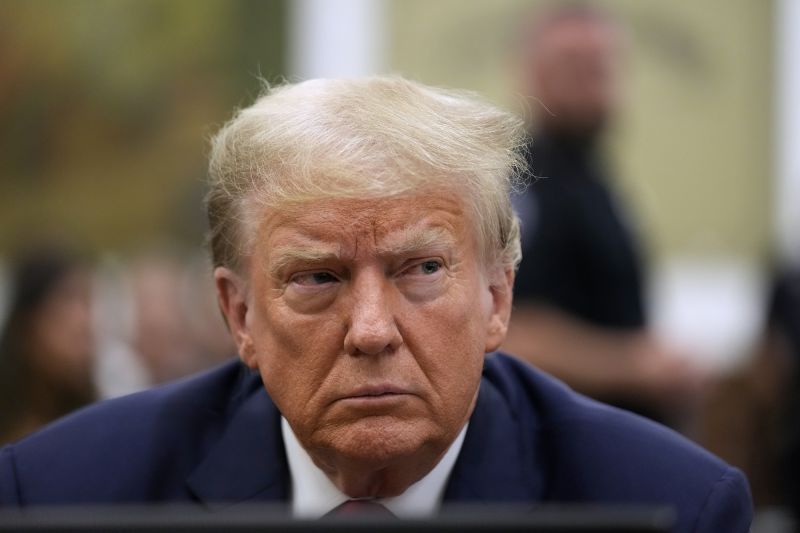
6. **Trump’s Retaliatory Remarks and Springsteen’s Unwavering Response**The escalation of Bruce Springsteen’s political critiques has, predictably, drawn direct responses from Donald Trump, leading to a public exchange that illuminates the stark contrast in their communication styles and priorities. After Springsteen’s assertive remarks during a May concert in Manchester, England, where he branded the Trump administration as ‘corrupt, incompetent and treasonous,’ the former president leveraged his Truth Social platform to issue a pointed rebuttal. Trump characterized the rock icon as ‘Highly Overrated,’ asserting he ‘Never liked him, never liked his music, or his Radical Left Politics,’ and went on to label him ‘not a talented guy — Just a pushy, obnoxious JERK, who fervently supported Crooked Joe Biden, a mentally incompetent FOOL, and our WORST EVER President, who came close to destroying our Country.’ Trump further disparaged Springsteen as ‘dumb as a rock’ and a ‘dried out prune of a rocker,’ culminating in a warning for the musician to ‘KEEP HIS MOUTH SHUT until he gets back into the Country.’
The escalation of Bruce Springsteen’s political critiques has, predictably, drawn direct responses from Donald Trump, leading to a public exchange that illuminates the stark contrast in their communication styles and priorities. After Springsteen’s assertive remarks during a May concert in Manchester, England, where he branded the Trump administration as ‘corrupt, incompetent and treasonous,’ the former president leveraged his Truth Social platform to issue a pointed rebuttal. Trump characterized the rock icon as ‘Highly Overrated,’ asserting he ‘Never liked him, never liked his music, or his Radical Left Politics,’ and went on to label him ‘not a talented guy — Just a pushy, obnoxious JERK, who fervently supported Crooked Joe Biden, a mentally incompetent FOOL, and our WORST EVER President, who came close to destroying our Country.’ Trump further disparaged Springsteen as ‘dumb as a rock’ and a ‘dried out prune of a rocker,’ culminating in a warning for the musician to ‘KEEP HIS MOUTH SHUT until he gets back into the Country.’
These sharp personal attacks, however, appear to have done little to deter Springsteen from his path of outspoken advocacy. When asked about Trump’s criticisms during his subsequent interview with Time magazine, Springsteen’s response was definitive and dismissive. He stated with remarkable clarity, ‘I absolutely couldn’t care less what he thinks about me.’ This retort not only underlined his resolve but also suggested a strategic disinterest in engaging with what he perceives as a distraction from the substantive issues at hand. It reinforces his commitment to addressing the principles of governance and democracy rather than personal feuds.
Springsteen’s unwavering stance in the face of such public denigration highlights a core aspect of his political methodology: a steadfast focus on the message over the messenger, particularly when the messenger’s intent appears to be personal disparagement. His refusal to be drawn into a tit-for-tat exchange with the former president speaks to a broader commitment to maintaining the integrity of his critical discourse. This episode serves as a powerful testament to his determination to continue using his platform for what he views as vital civic engagement, unburdened by external pressures or personal affronts.
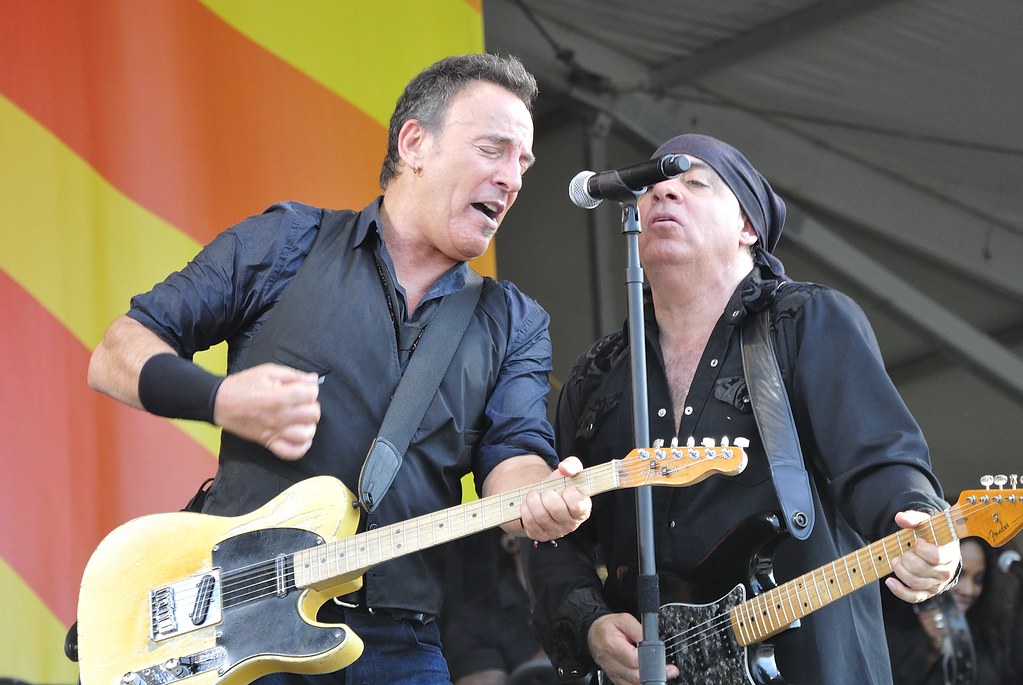
7. **On-Stage Activism: “The Ghost of Tom Joad” Protest**Beyond his interviews and direct pronouncements, Bruce Springsteen has consistently utilized his artistic stage as a powerful forum for political expression, transforming concerts into moments of direct social commentary. A notable instance of this occurred during his acclaimed ‘Springsteen on Broadway’ residency in June 2018. In a rare departure from his meticulously crafted setlist, Springsteen chose to perform his song ‘The Ghost of Tom Joad’ as an overt protest against the Trump administration’s immigration policy. This policy, which involved separating children from their undocumented parents at the U.S. border, drew widespread condemnation and prompted Springsteen’s forceful intervention.
Beyond his interviews and direct pronouncements, Bruce Springsteen has consistently utilized his artistic stage as a powerful forum for political expression, transforming concerts into moments of direct social commentary. A notable instance of this occurred during his acclaimed ‘Springsteen on Broadway’ residency in June 2018. In a rare departure from his meticulously crafted setlist, Springsteen chose to perform his song ‘The Ghost of Tom Joad’ as an overt protest against the Trump administration’s immigration policy. This policy, which involved separating children from their undocumented parents at the U.S. border, drew widespread condemnation and prompted Springsteen’s forceful intervention.
The context of this performance was particularly significant, as Springsteen had maintained a largely consistent setlist throughout his 146-show residency. Yet, on this specific night, he felt compelled to deviate from the script, telling the audience, ‘For 146 shows, I have played pretty much the same set every night. Tonight demands something different.’ He spoke at length to condemn the ‘inhumane’ treatment mandated by the policy, per The Guardian, highlighting a profound moral urgency that transcended the usual boundaries of his theatrical presentation. The raw emotion and directness of this act resonated deeply, demonstrating his willingness to sacrifice artistic routine for ethical imperative.
This act of on-stage activism exemplifies Springsteen’s belief that music and performance can serve as potent tools for political conscience and social justice. By selecting ‘The Ghost of Tom Joad,’ a song that itself is a poignant narrative of economic hardship, injustice, and the plight of the marginalized, he drew a powerful historical and thematic connection to the contemporary crisis. His unscripted remarks and musical choice underscored his view that the artist holds a responsibility to address grave societal issues, thereby solidifying his reputation as an artist deeply entwined with the nation’s conscience.
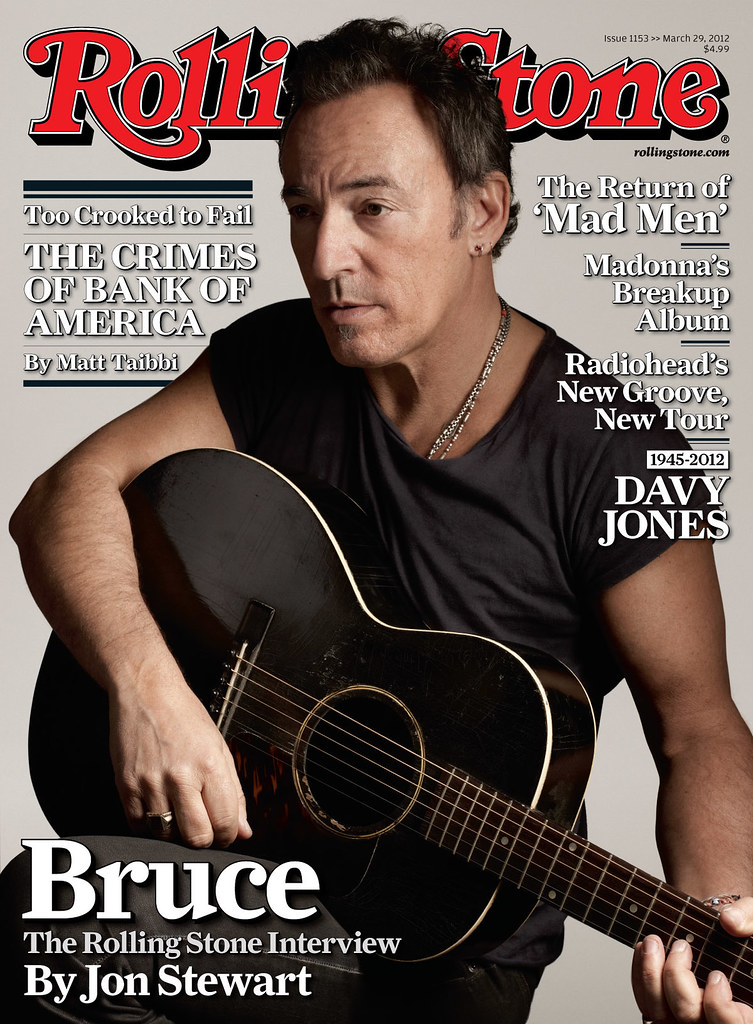
8. **On-Stage Activism: European Tour’s Fiery Takedown**Springsteen’s commitment to using his platform for political advocacy has remained steadfast and increasingly assertive, particularly evident during his international performances. In May, at the opening of the E Street Band’s European tour in Manchester, England, he delivered another impassioned critique of the Trump administration. This instance was not merely a subtle allusion but a fiery and direct condemnation, demonstrating his conviction that these issues transcend national borders and demand a global voice.
Springsteen’s commitment to using his platform for political advocacy has remained steadfast and increasingly assertive, particularly evident during his international performances. In May, at the opening of the E Street Band’s European tour in Manchester, England, he delivered another impassioned critique of the Trump administration. This instance was not merely a subtle allusion but a fiery and direct condemnation, demonstrating his conviction that these issues transcend national borders and demand a global voice.
During this powerful address, Springsteen declared, “In my home, the America I love, the America I’ve written about that has been a beacon of hope and liberty for 250 years, is currently in the hands of a corrupt, incompetent and treasonous administration.” This statement was a comprehensive indictment, encompassing perceived failures in integrity, capability, and loyalty to the nation’s foundational principles. His words resonated with a sense of urgency, portraying a cherished national identity under threat from within, and expressing a deep concern for the integrity of democratic institutions.
Furthermore, Springsteen’s speech evolved into a direct call to action for his audience, urging them to participate in the defense of democratic ideals. He passionately stated, “Tonight, we ask all who believe in democracy and the best of our American spirit to rise with us, raise your voices against authoritarianism and let freedom ring.” This appeal transcended mere protest; it was an invitation to collective action, emphasizing the importance of active civic engagement against what he perceives as a growing authoritarian tide. His sustained vocal opposition across various stages, both domestic and international, reinforces his role as a consistent and formidable voice for political accountability.
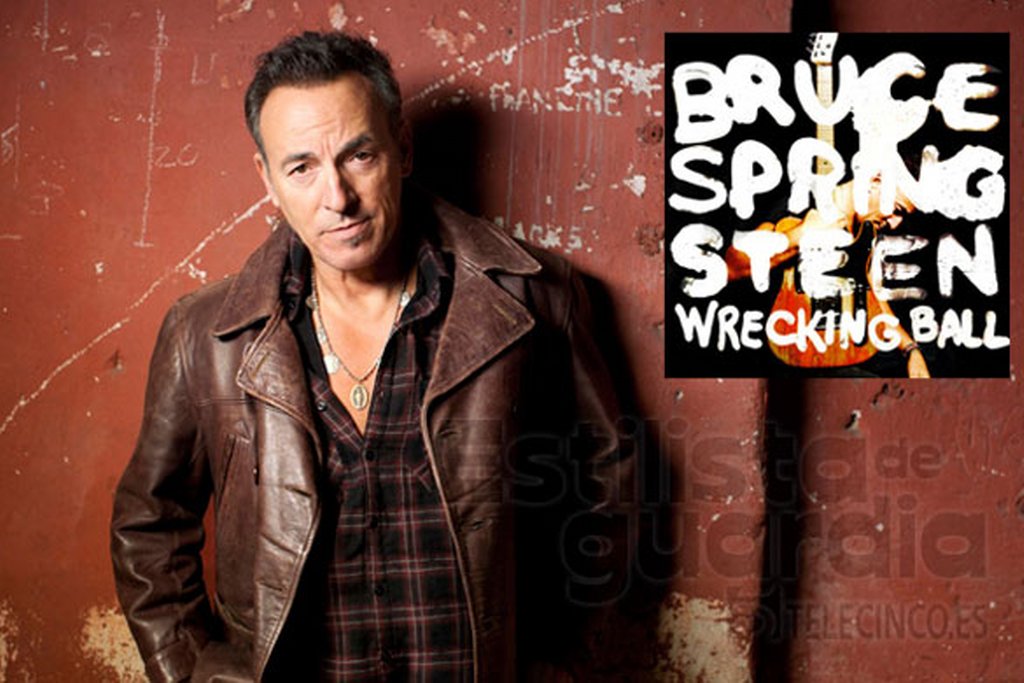
9. **Critiques of the Democratic Party’s Effectiveness**While Bruce Springsteen has been an unequivocal critic of Donald Trump and what he perceives as the erosion of democratic norms, his political commentary is not exclusively directed at one party. In his candid interview with Time magazine, he also articulated significant concerns regarding the efficacy and approach of the Democratic Party, suggesting a broader systemic challenge within American politics. This critique reveals a balanced perspective, acknowledging that solutions require more than simply opposing a single political figure.
While Bruce Springsteen has been an unequivocal critic of Donald Trump and what he perceives as the erosion of democratic norms, his political commentary is not exclusively directed at one party. In his candid interview with Time magazine, he also articulated significant concerns regarding the efficacy and approach of the Democratic Party, suggesting a broader systemic challenge within American politics. This critique reveals a balanced perspective, acknowledging that solutions require more than simply opposing a single political figure.
Springsteen expressed a profound longing for a more robust political alternative, stating, “We’re desperately in need of an effective alternative party, or for the Democratic Party to find someone who can speak to the majority of the nation.” This observation suggests a perception that the current Democratic Party, in its present form, may not be adequately equipped to address the diverse needs and aspirations of the American populace, or to effectively counter the appeal of populist movements. It signals a desire for a political force capable of uniting a broader coalition of voters.
He further identified a specific challenge in how the Democrats communicate with the electorate: “There is a problem with the language that they’re using and the way they’re trying to reach people.” This particular criticism hints at a perceived disconnect between the party’s messaging and the realities or concerns of a significant portion of the American public, particularly those in the working-class communities he has long championed. For Springsteen, effective political engagement is not just about policy, but about a genuine, relatable connection with citizens, a connection he implies the Democratic Party struggles to forge consistently. His critique serves as a call for introspection and strategic recalibration within the party, aiming for a more inclusive and persuasive political dialogue.
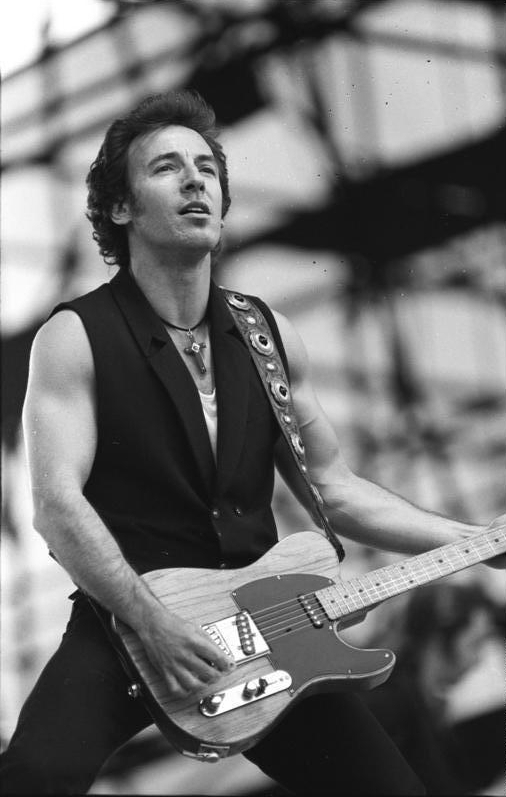

10. **Springsteen’s Enduring Commitment to Political Accountability**At the core of Bruce Springsteen’s sustained and intensified political engagement lies a fundamental commitment to accountability—both personal and governmental. This principle drives his refusal to remain silent in the face of what he perceives as profound threats to American democracy and its values. His rationale is deeply rooted in a sense of personal integrity and a long-standing identification with the struggles of ordinary Americans, as evidenced in his music and public life.
At the core of Bruce Springsteen’s sustained and intensified political engagement lies a fundamental commitment to accountability—both personal and governmental. This principle drives his refusal to remain silent in the face of what he perceives as profound threats to American democracy and its values. His rationale is deeply rooted in a sense of personal integrity and a long-standing identification with the struggles of ordinary Americans, as evidenced in his music and public life.
He articulated this moral imperative clearly, stating, “If I’m going to stay true to who I’ve tried to be… I can’t give these guys a free pass.” This sentiment underscores a belief that his public platform carries a responsibility to challenge abuses of power and to advocate for the principles he holds dear. For Springsteen, silence is complicity, and his commitment to authenticity dictates that he must speak out, regardless of potential backlash or the personal cost. His decades-long career, often portraying the ‘boss’ of the working class, finds its modern political manifestation in this unwavering stance.
This commitment to political accountability extends beyond mere criticism to active participation in the democratic process. His endorsement and campaigning for former Vice President Kamala Harris during the 2024 presidential election illustrate his belief in supporting leaders who he feels embody the values necessary for the nation’s future. He has consistently used his public performances as a ‘musical soapbox’ to rebuke policies and conduct he deems detrimental, cementing his role as a consistent voice in the national political discourse. Springsteen’s steadfastness signals that his activism is not ephemeral but an ingrained aspect of his identity and his continuing contribution to American public life.
Read more about: From Child Stars to Civilian Life: The Unexpected Normal Jobs of Celebrity Kids You Won’t Believe

11. **The Broader Message: Battling for the “American Spirit”**Ultimately, Bruce Springsteen’s political discourse, while specific in its criticisms of Donald Trump and the Democratic Party, converges on a broader and more profound message: a battle for the very soul of the ‘American spirit.’ His concerns extend beyond individual policies or political figures, touching upon the foundational values he believes are essential for the nation’s health and future. This overarching vision informs his relentless advocacy and gives deeper meaning to his every public statement.
Ultimately, Bruce Springsteen’s political discourse, while specific in its criticisms of Donald Trump and the Democratic Party, converges on a broader and more profound message: a battle for the very soul of the ‘American spirit.’ His concerns extend beyond individual policies or political figures, touching upon the foundational values he believes are essential for the nation’s health and future. This overarching vision informs his relentless advocacy and gives deeper meaning to his every public statement.
Central to this vision is his enduring belief in America as a ‘beacon of hope and liberty.’ His passionate words during his Manchester concert—referring to ‘the America I love, the America I’ve written about’—underscore a deep patriotic connection to an idealized nation, one he feels is currently imperiled. For Springsteen, the political battles he engages in are not merely about partisan gains but about preserving the promise of this historical ideal, ensuring that liberty and democratic principles remain vibrant and accessible to all citizens.
Springsteen’s consistent calls to ‘raise your voices against authoritarianism and let freedom ring’ are not abstract political slogans but heartfelt appeals to civic responsibility. He views political accountability as a vital mechanism for upholding the nation’s foundational principles and preventing the slide into unchecked power or divisive governance. His unyielding stance, reinforced by his observation that ‘a good number of Americans are simply comfortable with his politics of power and dominance,’ emphasizes the urgent need for citizens to re-engage with and defend the democratic experiment. In a landscape often characterized by cynicism, Springsteen’s voice stands as a testament to the enduring power of conviction and the unwavering hope for a more just and accountable America.

